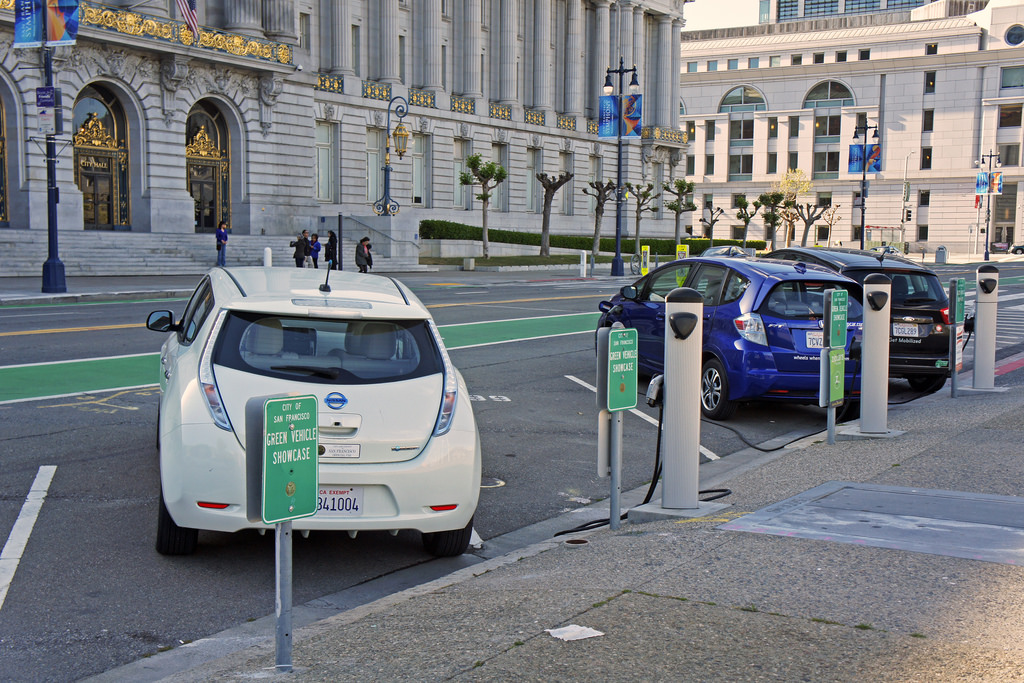Right now, the Fossil Fuel industry is hanging on by a very thin thread that is the current technological limitations of renewable energy. However, this lifeline is getting weaker by the day. Thanks to a new discovery related to fast-charging batteries, the end of Big Oil might be closer than anybody would have thought. This new technology can make recharging electric cars as fast as refueling gas vehicles.
The discovery in question was made by researchers at the Purdue University. The project was led by Professor John Cushman and the findings were even presented at the International Society for Porous Media 9th International Conference held in The Netherlands. In the university press release, Cushman said that this new technology addresses the biggest challenge that electric cars face.
“Electric and hybrid vehicle sales are growing worldwide and the popularity of companies like Tesla is incredible, but there continues to be strong challenges for industry and consumers of electric or hybrid cars,” Cushman said. “The biggest challenge for industry is to extend the life of a battery’s charge and the infrastructure needed to actually charge the vehicle. The greatest hurdle for drivers is the time commitment to keeping their cars fully charged.”
Called the Ifbattery, the method basically involves refueling electric cars with a solution that contains electrolytes. Since the solutions are largely made up of water, it’s a safe alternative to petroleum and is sustainable since it can be used over and over.
The technology actually falls under a new kind of battery called a “flow battery,” Futurism reports. It basically works like a hybrid of fuel and electricity, which can be deposited in refueling stations in exchanged for a new batch. The used batch would then be sent to solar farms to be processed again. Instead of refining oil, these facilities will be refining the solution to charge it up with electrolytes.
Not only is the process sustainable and environmentally friendly, it’s also incredibly economical. On top of that, it’s a much safer option than either conventional Li-ion batteries or gas.



 SpaceX Reports $8 Billion Profit as IPO Plans and Starlink Growth Fuel Valuation Buzz
SpaceX Reports $8 Billion Profit as IPO Plans and Starlink Growth Fuel Valuation Buzz  Amazon Stock Rebounds After Earnings as $200B Capex Plan Sparks AI Spending Debate
Amazon Stock Rebounds After Earnings as $200B Capex Plan Sparks AI Spending Debate  Neuren Pharmaceuticals Surges on U.S. Patent Win for Rare Disorder Drug
Neuren Pharmaceuticals Surges on U.S. Patent Win for Rare Disorder Drug  NASA and SpaceX Target Crew-11 Undocking From ISS Amid Medical Concern
NASA and SpaceX Target Crew-11 Undocking From ISS Amid Medical Concern  FDA Pilot Program Eases Rules for Nicotine Pouch Makers
FDA Pilot Program Eases Rules for Nicotine Pouch Makers  NASA Astronauts Wilmore and Williams Recover After Boeing Starliner Delay
NASA Astronauts Wilmore and Williams Recover After Boeing Starliner Delay  OpenAI Expands Enterprise AI Strategy With Major Hiring Push Ahead of New Business Offering
OpenAI Expands Enterprise AI Strategy With Major Hiring Push Ahead of New Business Offering  AMD Shares Slide Despite Earnings Beat as Cautious Revenue Outlook Weighs on Stock
AMD Shares Slide Despite Earnings Beat as Cautious Revenue Outlook Weighs on Stock  Alphabet’s Massive AI Spending Surge Signals Confidence in Google’s Growth Engine
Alphabet’s Massive AI Spending Surge Signals Confidence in Google’s Growth Engine  SpaceX Starship Test Flight Reaches New Heights but Ends in Setback
SpaceX Starship Test Flight Reaches New Heights but Ends in Setback  Neuralink Expands Brain Implant Trials with 12 Global Patients
Neuralink Expands Brain Implant Trials with 12 Global Patients  SpaceX Updates Starlink Privacy Policy to Allow AI Training as xAI Merger Talks and IPO Loom
SpaceX Updates Starlink Privacy Policy to Allow AI Training as xAI Merger Talks and IPO Loom  Baidu Approves $5 Billion Share Buyback and Plans First-Ever Dividend in 2026
Baidu Approves $5 Billion Share Buyback and Plans First-Ever Dividend in 2026  Nintendo Shares Slide After Earnings Miss Raises Switch 2 Margin Concerns
Nintendo Shares Slide After Earnings Miss Raises Switch 2 Margin Concerns 































